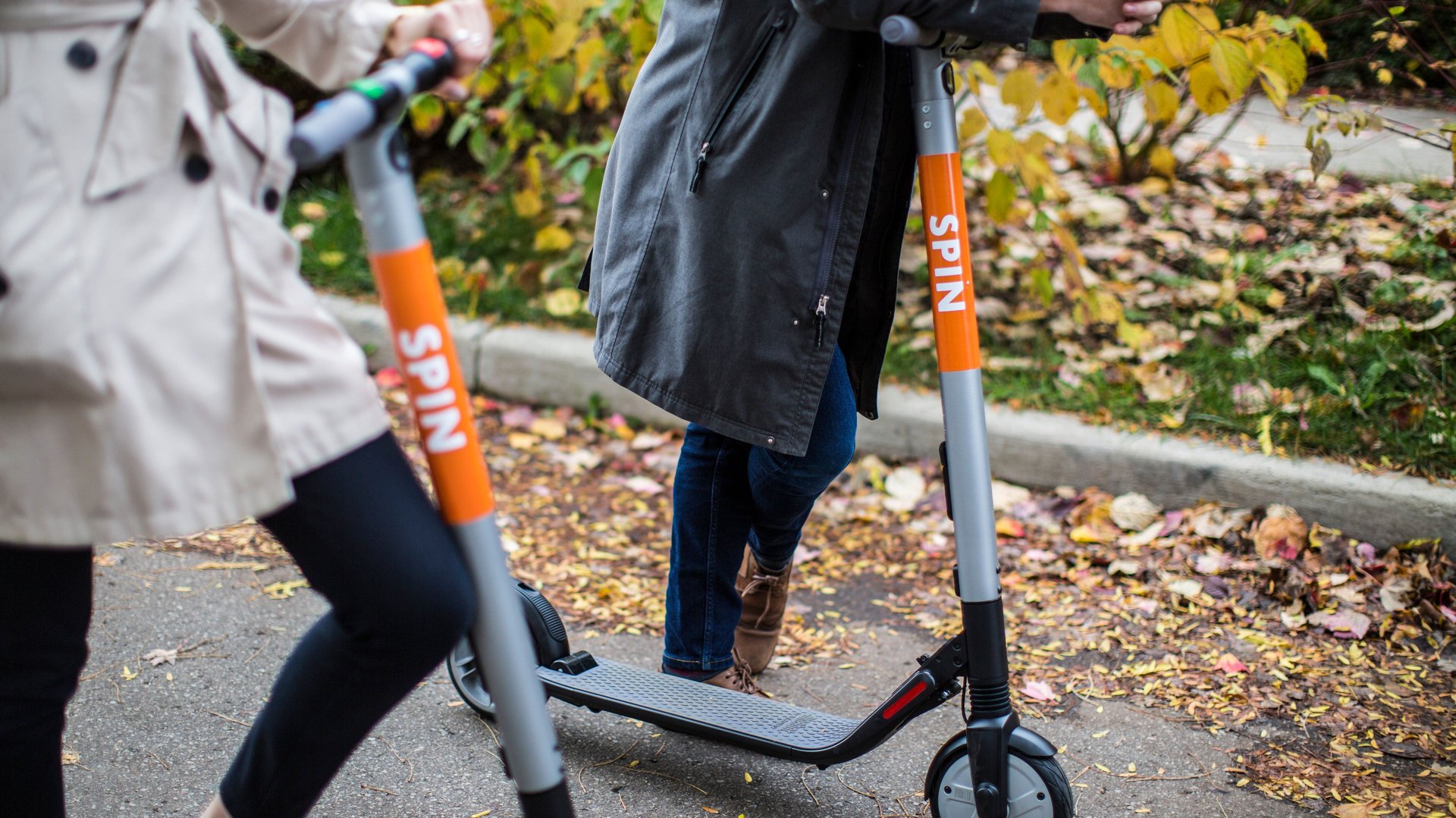Ford is on track to turning the jargon of being a “mobility company” into a reality
Though it’s known as one of the original car manufacturers, Ford’s been trying to shed that image and step into a more modern role. Today (Nov. 8), it announced that it’s tapping into the biggest new trend in transportation: electric scooters.


Though it’s known as one of the original car manufacturers, Ford’s been trying to shed that image and step into a more modern role. Today (Nov. 8), it announced that it’s tapping into the biggest new trend in transportation: electric scooters.
The company is acquiring Spin, the dockless scooter company based in San Francisco, adding to its growing portfolio of “mobility” acquisitions. Since the company spun out a new division called Ford Smart Mobility in 2016, it announced it’s phasing out all but two of its car models, and has acquired quite the diverse portfolio, including the Bay Area bike share problem GoBike; GoRide, a fleet of non-emergency medical transportation vans; Chariot, an on-demand shuttle service; ArgoAI, a self-driving car company; and Autonomic and TransLoc, both transportation software companies. The latter three are part of Ford’s new autonomous vehicle division, which aims to have Ford self-driving cars on the road by 2021.
Spin scooters are already available in nine cities and five college campuses in the US, and Ford seems eager to expand its scooter reach. The company has already collaborated with Purdue University on launching a fleet of scooters called Jelly, and in a statement announcing the Spin acquisition, Sunny Madra, the vice president of the company’s incubator, Ford X, reflected on what Jelly’s roll-out experience taught the company about “the key elements required to succeed” in the scooter market. Most notably, he mentioned involving cities and campuses with roll-outs to introduce scooter sharing “responsibly,” a subtle nod to other e-scooter companies’ clashes with local governments.
Citing research from mobility software company Populus, Madra says most trips in the US are less than 3 miles. As an alternative to cars, scooters “can help tackle challenges such as traffic congestion, parking availability and pollution.”